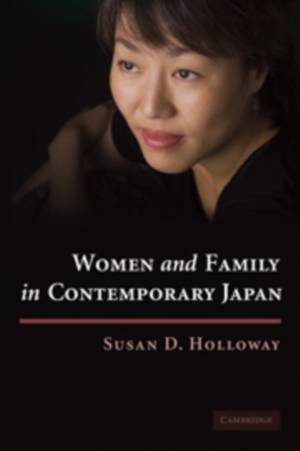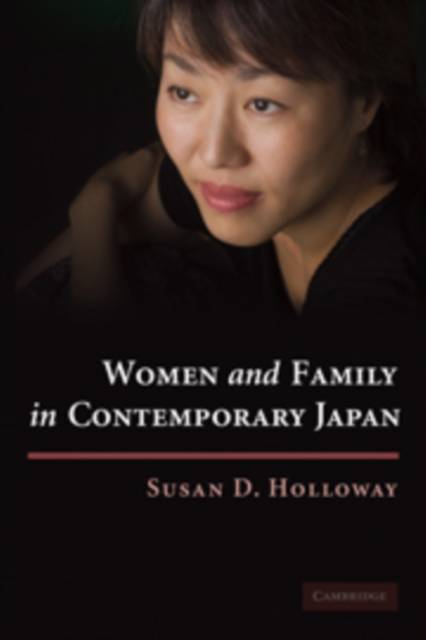
Bedankt voor het vertrouwen het afgelopen jaar! Om jou te bedanken bieden we GRATIS verzending (in België) aan op alles gedurende de hele maand januari.
- Afhalen na 1 uur in een winkel met voorraad
- In januari gratis thuislevering in België
- Ruim aanbod met 7 miljoen producten
Bedankt voor het vertrouwen het afgelopen jaar! Om jou te bedanken bieden we GRATIS verzending (in België) aan op alles gedurende de hele maand januari.
- Afhalen na 1 uur in een winkel met voorraad
- In januari gratis thuislevering in België
- Ruim aanbod met 7 miljoen producten
Zoeken
€ 57,95
+ 115 punten
Uitvoering
Omschrijving
Japanese women have often been singled out for their strong commitment to the role of housewife and mother. But they are now postponing marriage and bearing fewer children, and Japan has become one of the least fertile and fastest aging countries in the world. Why are so many Japanese women opting out of family life? To answer this question, the author draws on in-depth interviews and extensive survey data to examine Japanese mothers' perspectives and experiences of marriage, parenting, and family life. The goal is to understand how, as introspective, self-aware individuals, these women interpret and respond to the barriers and opportunities afforded within the structural and ideological contexts of contemporary Japan. The findings suggest a need for changes in the structure of the workplace and the education system to provide women with the opportunity to find a fulfilling balance of work and family life.
Specificaties
Betrokkenen
- Auteur(s):
- Uitgeverij:
Inhoud
- Aantal bladzijden:
- 256
- Taal:
- Engels
Eigenschappen
- Productcode (EAN):
- 9780521180375
- Verschijningsdatum:
- 24/05/2010
- Uitvoering:
- Paperback
- Formaat:
- Trade paperback (VS)
- Afmetingen:
- 150 mm x 226 mm
- Gewicht:
- 408 g

Alleen bij Standaard Boekhandel
+ 115 punten op je klantenkaart van Standaard Boekhandel
Beoordelingen
We publiceren alleen reviews die voldoen aan de voorwaarden voor reviews. Bekijk onze voorwaarden voor reviews.









